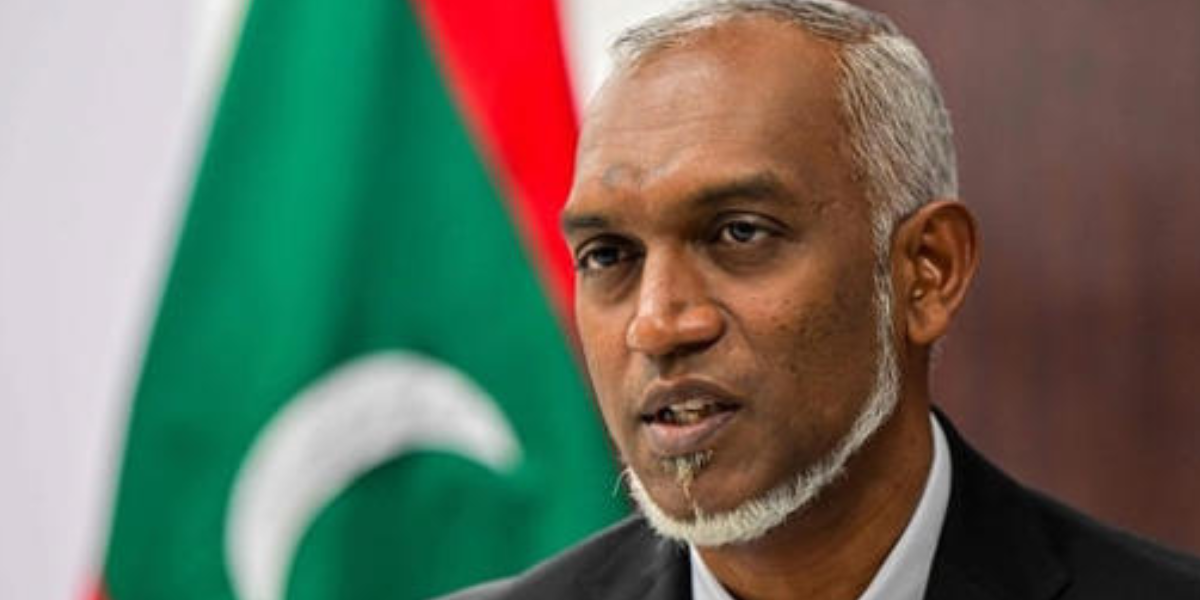In the intricate dance of global politics, the diplomatic discord between India and the Maldives has evolved into a multi-faceted narrative, marked by a series of events that have unfolded since the assumption of office by the China-leaning Maldivian President, Mohamed Muizzu, in November of the previous year. Against this backdrop, President Muizzu’s unexpected gesture of extending warm wishes to India on its 75th Republic Day adds an intriguing layer to the unfolding diplomatic drama.
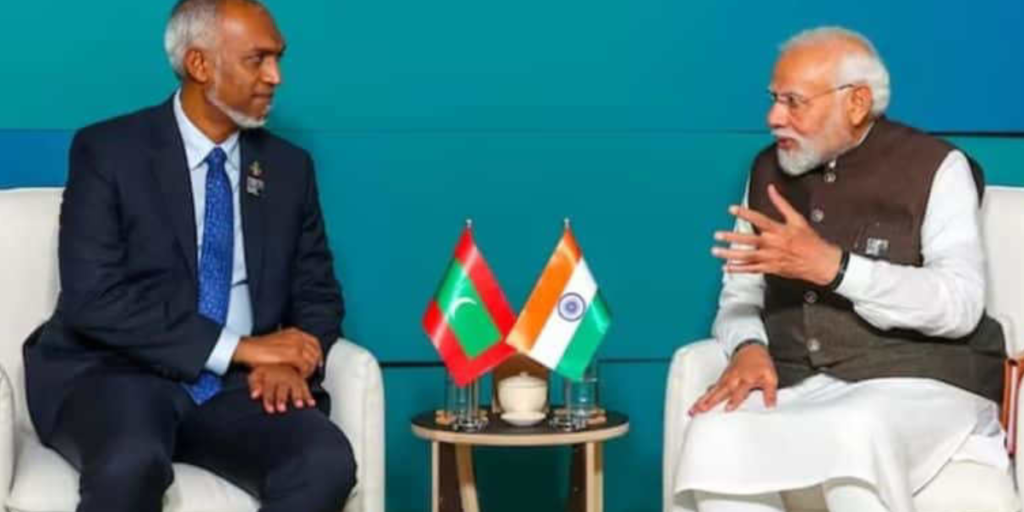
Table of Contents
A Surprising Overture: President Muizzu’s Republic Day Greetings
Amidst the ongoing diplomatic turbulence, President Muizzu, acting on behalf of the Maldivian Government and its people, conveyed heartfelt greetings and good wishes to the President and Prime Minister of India. The unexpected olive branch emphasized the historical ties between the two nations, citing centuries of friendship, mutual respect, and a deep-seated sense of kinship.
The Role of Strategic Moves Between India – Maldives
The recent decision by the Maldives to permit a Chinese research vessel to dock at the Male port has heightened the complexity of the India-Maldives diplomatic rift. This move, despite India’s reservations regarding the expanding presence of the Chinese navy in the Indian Ocean, underscores the shifting alliances and geopolitical considerations at play in the region. The Maldives, with its proximity to India and its strategic location as a hub for commercial sea lanes in the Indian Ocean Region, has become a focal point in the geopolitical chessboard.
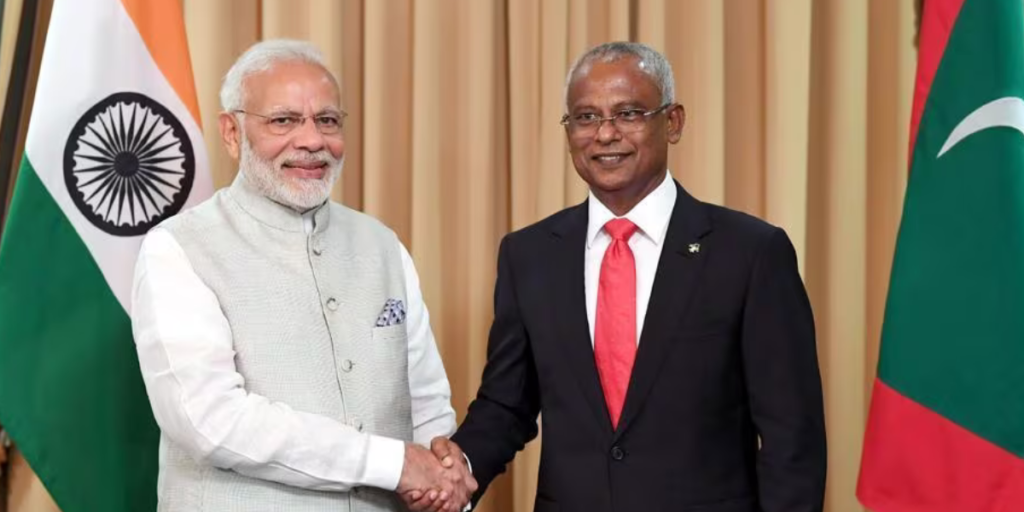
As the Maldives tilts towards China, breaking from the historical norm of relying on India, questions arise about the potential long-term consequences for regional stability. The strategic significance of the Indian Ocean and the delicate balance of power among nations in the region further amplify the consequences of such decisions. The Indian government’s response to these developments will likely shape the future trajectory of diplomatic relations in this critical maritime space.
Navigating National Interests
The India-Maldives diplomatic row, marked by its twists and turns, reflects the evolving dynamics of national interests and allegiances. President Muizzu’s unconventional demands upon assuming office and subsequent engagements with China indicate a recalibration of the Maldives’ foreign policy, signaling a shift from traditional alliances. This recalibration comes at a time when China’s influence in the region is expanding, challenging the established order.
For India, the diplomatic challenge lies in navigating these shifting sands while preserving its strategic interests in the Indian Ocean. The traditional bonds of friendship and cooperation between India and the Maldives, as highlighted in President Muizzu’s Republic Day greetings, face the test of contemporary geopolitical realities. The nuanced responses from former Presidents Nasheed and Solih, expressing gratitude and optimism, suggest an understanding of the delicate balance required to maintain historical ties while adapting to evolving global dynamics.
Broader Implications on Indian Ocean Dynamics
The India-Maldives diplomatic row is not merely a bilateral dispute but a regional microcosm reflecting the broader geopolitical struggle for influence in the Indian Ocean. As China extends its reach into the region, other nations, including India, must carefully recalibrate their strategies to maintain stability and safeguard their interests.
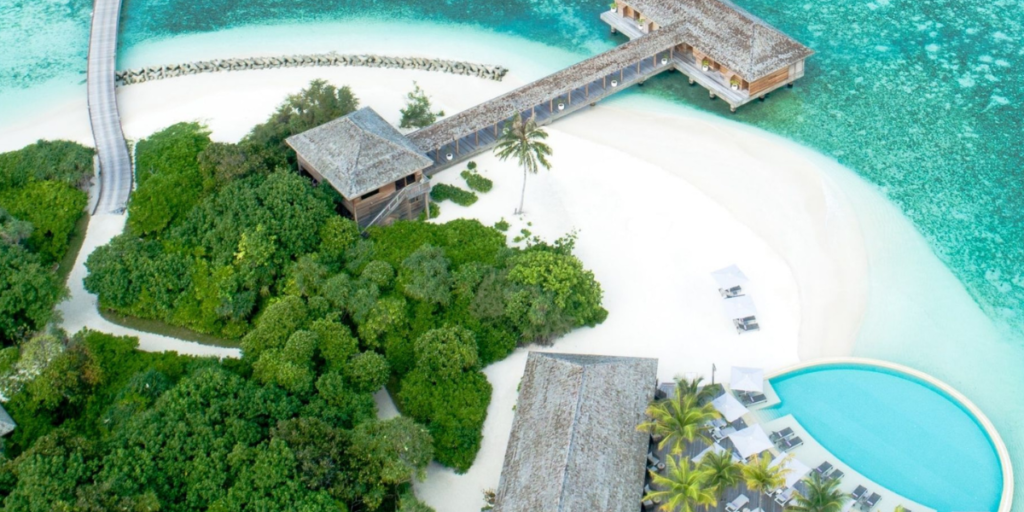
The Maldives, positioned strategically in the heart of the Indian Ocean, has become a geopolitical focal point, with its decisions resonating far beyond its shores. The delicate dance between nations in this maritime expanse has repercussions for trade, security, and geopolitical alignments. As the diplomatic tussle unfolds, the eyes of the international community remain fixated on the Indian Ocean, where the ripples of these strategic maneuvers are felt globally.
The Genesis of Strained Relations: Unconventional Diplomacy Unfolds
The discord between India and the Maldives traces its roots to President Muizzu’s bold move of demanding the repatriation of Indian troops from the Maldives within a mere 24 hours of his inauguration, a departure from the tradition of making India the first port of call. This unconventional move set the stage for a series of escalating tensions.
Social Media Unrest: Ministerial Comments Amplify Tensions
Tensions further intensified with the unprecedented use of social media by Maldivian ministers, who made unruly comments against India and Prime Minister Narendra Modi following his visit to Lakshadweep. The digital sparring added a new dimension to the diplomatic rift, raising questions about the appropriateness of such platforms in international relations.
Foreign Minister’s Reassurance: Navigating Troubled Waters
Despite the strained relations, Foreign Minister Moosa Zameer extended warm greetings to his Indian counterpart S Jaishankar and the people of India. Zameer expressed confidence in the enduring bonds of friendship and cooperation between the Maldives and India, projecting optimism for a flourishing relationship in the years ahead. This diplomatic reassurance served as a nuanced counterpoint to the overt tensions.
Former Presidents’ Voices: Gratitude and Optimism Echo
Former Presidents Mohamed Nasheed and Ibrahim Mohamed Solih added their voices to the narrative, expressing gratitude and optimism. Nasheed emphasized the eternal nature of Maldives-Indian friendship and acknowledged India’s consistent assistance over the years. Solih wished for the unbreakable bonds of friendship to strengthen further, echoing a sentiment of enduring cooperation.
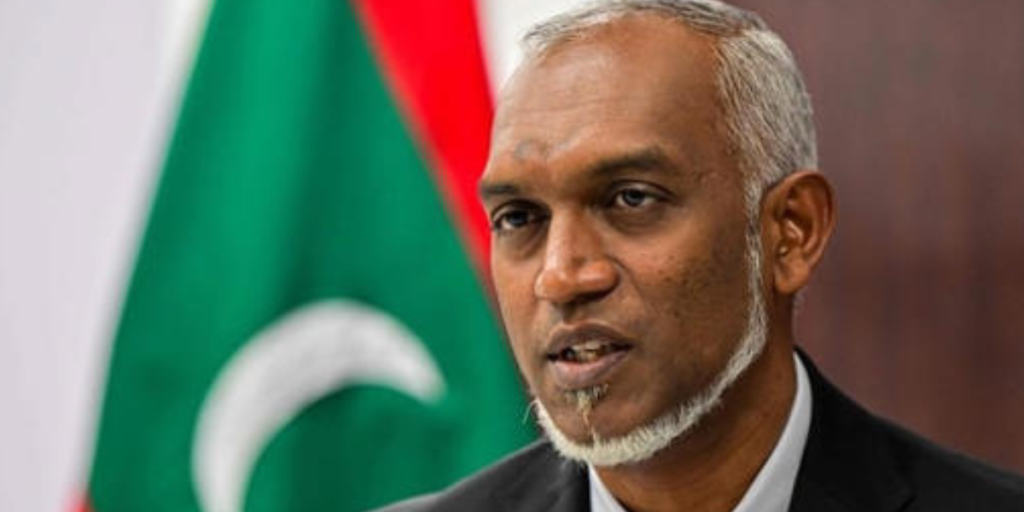
The diplomatic tensions reached a new zenith when the Maldives, earlier this week, agreed to allow a Chinese research vessel to dock at the Male port. This decision, made against India’s apprehensions about the expanding Chinese navy’s influence in the Indian Ocean, adds a new layer of complexity to an already intricate geopolitical chessboard.
As the India-Maldives diplomatic row continues to unfold, the layers of complexity become increasingly evident. President Muizzu’s unexpected Republic Day greetings serve as a reminder that, in the world of international relations, gestures of goodwill can coexist with simmering tensions. The strategic significance of the Maldives in the Indian Ocean amplifies the gravity of every diplomatic move, turning the region into a geopolitical hotspot that demands careful observation in the coming months. As these nations navigate troubled waters, the outcome of this diplomatic dance remains uncertain, with potential ramifications echoing across the broader geopolitical landscape.

